
Congratulations to the members of the Entomological Society of America recently elected to volunteer positions for the 2018-2019 term. The electronic ballot period for members was completed August 24, 2018. Below, the candidates elected to positions within the Society, the ESA Certification Corporation, and several ESA Sections and Branches are listed.
All elected candidates begin their roles upon the completion of the 2018 ESA Annual Meeting, November 11-14, 2018.
ESA members also voted on Honorary Members and proposed amendments to the ESA Bylaws during the election period. Click below to view the results:
Click below to see the elected 2018-2019 candidates for:
- ESA Society Elections
- Certification Board Elections
- Medical, Urban, and Veterinary Entomology (MUVE) Section Elections
- Physiology, Biochemistry, and Toxicology (PBT) Section Elections
- Plant–Insect Ecosystems (P-IE) Section Elections
- Systematics, Evolution, and Biodiversity (SysEB) Section Elections
- Eastern Branch Elections
- International Branch Elections
- Southwestern Branch Elections
ESA Society Elections
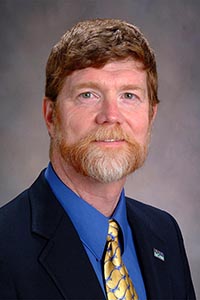
Louisiana State University
Dr. Timothy Schowalter is Professor and former Department Head of Entomology at Louisiana State University. He received his Ph.D. from the University of Georgia and was a postdoc at Texas A&M University before moving to Oregon State University as an Assistant Professor in 1981. He was promoted to Professor in 1993 and served as Interim Head before moving to LSU in 2003.
His research on insect responses to disturbances and the effects of these responses on ecosystem structure and function has been published in four books, including Insect Ecology: An Ecosystem Approach and Insects and Sustainability of Ecosystem Services, three invited review papers, 80 peer-reviewed journal papers and more than 50 book chapters and other publications. He has served ESA as SEB representative on the Governing Board and as associate editor. He also has served as Program Director for Ecosystem Studies at the National Science Foundation and Vice President for Public Affairs, Ecological Society of America. He is a Fellow of the Ecological Society of America.
Schowalter says, "I am committed to the goals of the ESA. I support broadening of member diversity, promoting professional opportunities for all members, communicating entomological science to policy-makers, and coordinating entomological science globally. My service as SEB Representative on the ESA Governing Board has provided experience with ESA governance and opportunities available to ESA members. I will work to encourage membership among students and early career professionals and to ensure that all members benefit from the networking, publication, educational and professional development opportunities provided by ESA."
 Lina Bernaola
Lina Bernaola
Louisiana State University
Lina Bernaola was born in Lima, Perú. She is an entomology doctoral candidate at Louisiana State University (LSU). Her research involves investigations of the effects of mycorrhizal fungi, a symbiotic soil-borne organism, on rice resistance to insect herbivores and pathogens. Lina earned her B.S. in biological sciences from San Marcos National University and later completed her M.S. in agronomy at LSU.
Lina has been actively involved in ESA since 2013. She has presented her research at several national and Southeastern Branch meetings; she has also participated in LSU's Linnaean Games and Student Debate teams. Lina is a member of the Plant-Insect Ecosystems (P-IE) Section and has served on the P-IE Governing Council as the Student Representative as well as on the Student Affairs Committee. In all of these leadership positions, she worked on students' needs and assisted in organizing different symposia, student debates, workshops, and lunch and learn sessions at branch and national levels.
Lina currently serves as the Student Representative to the Governing Board. She has learned a lot about the Society, especially regarding the structure of ESA. By running for a second term, she would be honored to continue working hard at the core of ESA, to promote a community that is inclusive of diversity and to entice more active members for the growth of the Society. She enjoys serving ESA because it is the largest insect-science society in the world. As such, it is uniquely positioned to engage and network with organizations worldwide to take on entomological challenges we face in the coming years.
Certification Board Elections
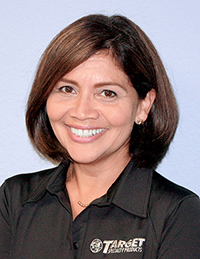 Sylvia Kenmuir
Sylvia Kenmuir
Target Specialty Products
I am a Board Certified Entomologist and licensed Pest Control Adviser. I am the Director of Technical Training for Target Specialty Products based out of Santa Fe Springs, California. We are a national distributor of pest management supplies, and I have been with Target for 30 years.
My role with Target consists of managing and creating all technical training content for CEU's as well as hands on training programs for Pest Management Professionals. My focus is on the specialty markets including Structural Pest Control, Fumigation and Regulatory compliance. My department trains over 18,000 PMP's annually in all areas of certification nationwide. We also assist with licensing certification preparation courses for state licensure for applying pesticides.
In the last few years, I started to provide a 10-week online ACE prep course geared to assisting licensed PMP's acquire this valuable credential. I also work with established industry experts in becoming a BCE and offer study prep and proctoring. I am passionate about what we do to protect human health, and I often speak and educate on a variety of topics including urban pests, integrated pest management, and regulatory issues. I am the rodenticide task force and west coast rodent academy chair for Pest Control Operators of California as well as a board member for Nevada Pest Management Association.
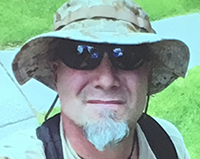 Alan Feuer
Alan Feuer
Preventative Pest Control
The following recommendation is provided by Dr. Robert W. Davis, BCE:
"I have worked with Alan on New Mexico Pest Management State Association (NMPMA) and National Pest Management Association (NPMA) events. Alan has passion for the industry. He believes that knowledge and professionalism across the industry will help all.
Alan is one of the best Technical Directors I have worked with. He is a respected licensed professional within the industry, his community, and the ACE program. He provides training, teaching and support for the pest professionals in his company as well as others in the Southwestern U.S. Alan is a member of the NPMA Wood Destroying Organism & Technical Committees. Alan has been a driver in organizing and providing Pest Management Professional training events in New Mexico. He has helped PMP's keep current in licensing and expertise in Urban Pest Management.
Alan is a supporter of his state and communities. He has served our country as a Marine and has passion for our veterans. He is active in his church community and helps many with their faith.
Alan is an active supporter of the ESA and the Certification Program. He is an ACE and has promoted the program to interested Pest Management Professionals and set up exam proctors for ACE applicants. Alan organized an ACE review course and testing opportunity at the 2017 NMPMA meetings. He helped 20-plus ACE applicants prepare for the exams.
As a past Director of the Certification Program, a BCE, and supporter of the ACE program, I attest that Alan qualifies for this ACE position."
MUVE Elections
 Michael Hay Reiskind
Michael Hay Reiskind
North Carolina State University
Michael Hay Reiskind is an associate professor at North Carolina State University (NCSU), Raleigh, in the Department of Entomology and Plant Pathology. He has been at NCSU since 2012, leading a research and teaching program in medical entomology. He was raised in Gainesville, Florida, where he gained an appreciation for the diversity of arthropods and an interest in those that bite and suck blood. He earned a B.A. from Amherst College and did undergraduate research on infectious disease evolution in an insect virus with Paul Ewald.
After working at the University of Florida post-college, he went to the University of Michigan School of Public Health, where he studied mosquito ecology in the context of human disease transmission. When he finished a Master's in Public Health, he stayed at the University of Michigan to do a Ph.D. in biology under the direction of Mark L. Wilson, studying Culex ecology. He then became a postdoctoral associate at the Florida Medical Entomology Laboratory in Vero Beach, Florida, working with L. Phil Lounibos on container Aedes ecology.
In 2008, he moved to Oklahoma State University, Stillwater, as an assistant professor, where he was for four years. He has authored over 45 peer-reviewed publications and has served on the Editorial Board of the Journal of Medical Entomology, as well as organized two program symposia at ESA Annual Meetings. He is the current Past President of the North Carolina Mosquito and Vector Control Association and the Editor-in-Chief of its newsletter, The Biting Times.
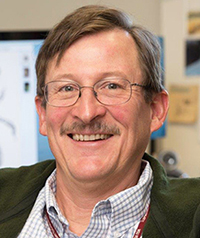 Glen A. Scoles
Glen A. Scoles
USDA, ARS, Animal Disease Research Unit, Washington State University
Dr. Glen A. Scoles received his B.S. in entomology from Cornell University (1980) then was employed there as a technician in medical and veterinary entomology (1980-86). He then took a position for Johns Hopkins University as field supervisor of the Onchocerciasis Research Project in Liberia (1986-87). After returning to the U.S. he again worked as a technician at Cornell in insect chemical ecology until beginning graduate work at the University of Notre Dame in 1990. He earned M.S. (1994) and Ph.D. (1997) in biological science working on transmission of canine heartworm by Aedes albopictus. Postdoctoral training included work on African swine fever virus transmission by Ornithodoros ticks at the USDA, Plum Island Animal Disease Center (1996-98), and work on Ixodes scapularis and Borrelia miyamotoi at Yale University (1998-2000).
Dr. Scoles joined the USDA, ARS, Animal Disease Research Unit at Washington State University in 2000 as a Research Entomologist, where he remains today. Dr. Scoles conducts research on ticks and tick-borne pathogens of livestock. Current research focuses on anti-tick vaccination of livestock and on transmission of bovine babesiosis and anaplasmosis and equine piroplasmosis. Scoles holds adjunct faculty appointments at Washington State University and the University of Idaho.
He has been a member of ESA since 1989. ESA leadership roles have included: Section D representative, Education and Youth committee (2003-2006); Annals Editorial Board (2009-2012); Medical, Urban, and Veterinary Entomology Section representative, Publications Council (2014-present); and Science Policy Fellow (2017-present). He has also frequently served as student competition judge, session moderator, and symposium organizer at ESA annual meetings.
 Nathan D. Burkett-Cadena
Nathan D. Burkett-Cadena
Florida Medical Entomology Laboratory, University of Florida
Dr. Nathan D. Burkett-Cadena is Assistant Professor of Entomology at the University of Florida, Florida Medical Entomology Laboratory in Vero Beach, Florida. After receiving his Ph.D. in entomology from Auburn University (2010), Dr. Burkett-Cadena was a postdoctoral researcher at the University of South Florida Department of Global Health from 2011 to 2013. His research interests focus on surveillance and ecology of vector-borne diseases including eastern equine encephalitis virus, Everglades virus, Venezuelan equine encephalitis virus, West Nile virus, epizootic hemorrhagic disease virus, and river blindness.
Dr. Burkett-Cadena has co-authored 45 scientific publications related to medically important arthropods and the pathogens that they transmit. He is also author of the book Mosquitoes of the Southeastern United States (2013, University of Alabama Press). He lives with his wife, Marleny, and son, Daniel, in Vero Beach, Florida. He has been a member of the Entomological Society of America, in good standing, since 2003.
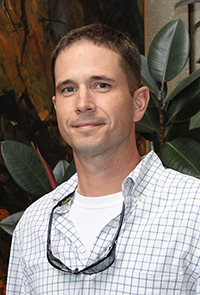 Robert Puckett
Robert Puckett
Texas A&M University
Dr. Robert Puckett was hired as Assistant Professor and Extension Entomologist at Texas A&M University during Fall 2014. He completed his Bachelor's and Master's degrees in the Department of Biological Sciences at Sam Houston State University in 2003 and his Ph.D. in the Department of Entomology at Texas A&M University in 2008. His dissertation work addressed the ecology of introduced ant-decapitating flies and their interactions with red imported fire ants, with the goal of improving fire ant biocontrol.
The success of his graduate student research and his service to the Entomological Society of America resulted in him being awarded the John Henry Comstock Graduate Student Award. After completing his graduate studies, he joined Dr. Roger Gold as a research scientist at the Rollins Urban & Structural Entomology Facility (formerly the Center for Urban and Structural Entomology) at Texas A&M University. Since then, his research has primarily involved investigations of the biology, behavior, and management of invasive social insect species including red imported fire ants, tawny crazy ants, and Formosan subterranean termites. Additionally, he is engaged in research involving a wide variety of urban insect pests including bed bugs, cockroaches, flies, and ornamental pests.
Dr. Puckett has published 25 scientific articles and has given more than 200 presentations at professional meetings and scientific conferences. Additionally, he served on the ESA Ethics and Rules committee for several years during and after his graduate work and served as chair for two years.
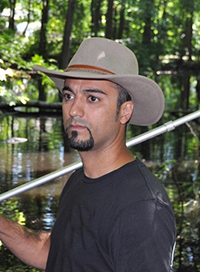 Ary Faraji
Ary Faraji
Salt Lake City Mosquito Abatement District
Dr. Ary Faraji is an accomplished scientist with a Ph.D. from Rutgers University. He is currently the Executive Director of the Salt Lake City Mosquito Abatement District, and his 69 peer reviewed and 71 non-peer reviewed publications are evidence he remains active in disease vector research. Many of these publications are in ESA publications.
He was an integral part of the Asian tiger mosquito project, which was a wide-area integrated vector management program for control of this invasive mosquito. Dr. Faraji continues promoting research and public interaction to support the control of disease vectors and has over 66 extension/outreach and 232 presentations.
He has been an active leader in many associations and he will be the future president of the American Mosquito Control Association.
PBT Elections
 Ronda Hamm
Ronda Hamm
Corteva AgriScience
Dr. Ronda Hamm received her B.S. in agricultural education at Fresno State University and her M.S. and Ph.D. in entomology from Cornell University. Currently the Global Academic Relations Manager at Corteva Agriscience, she collaborates with internal and external stakeholders to build science outreach and education opportunities.
Ronda has been involved in a variety of entomological pursuits, conducting research in the areas of pheromones, biological control, genetics, toxicology, resistance, urban pest management, and biotechnology. With 20 publications and six patent applications, Ronda has a deep appreciation for the diversity of insect science and its impact on our lives.
An active member of ESA Physiology, Biochemistry, and Toxicology Section and Medical, Urban, and Veterinary Entomology (MUVE) Section, Ronda is currently serving as the Education and Outreach Committee representative for MUVE. She was the 2017 North Central Branch local arrangements chair. She received the 2008 International Congress on Insect Neurochemistry & Neurophysiology recognition award. She has served the Entomological Foundation as a member of the Board of Counselors, a teacher workshop presenter and contributor for the interactive online game. Ronda has organized a number of member symposia at annual ESA meetings.
In 2016, Ronda was awarded the Distinguished Informal Educator Award from the National Science Teachers Association for her work in founding successful science, technology, engineering, and mathematics programs. Additionally, she is an adjunct faculty member at Ball State University.
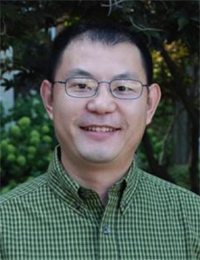 Xuguo "Joe" Zhou
Xuguo "Joe" Zhou
University of Kentucky
Dr. Xuguo (Joe) Zhou is an Associate Professor in the Department of Entomology at the University of Kentucky. He earned his B.S. from the Beijing Agricultural College, M.S. in entomology from the Chinese Agricultural University, and his Ph.D. from the University of Nebraska. He was a postdoctoral researcher at Purdue University and the University of Florida.
His research program at the University of Kentucky is a marriage between basic and applied research with an integrative genomics platform. His overall research goal is to integrate molecular biology and "omics" tools with fundamental biological disciplines to address some long-standing biological questions with practical implications. Specifically, the directions of his research program at the University of Kentucky include: 1) digestomics research on wood-feeding Dictyoptera, 2) behavioral genomics study of eusocial termites, and 3) the regulatory and technical challenges of RNAi-based pest management.
He is a long-time member of the Physiology, Biochemistry, and Toxicology (PBT) Section of the Entomological Society of America (ESA), where he is an active judge, organizer, and moderator for symposia. He has served as PBT Section Representative to the Journal of Economic Entomology Editorial Board and is completing his first term and seeking re-election.
 Elizabeth Beckemeyer
Elizabeth Beckemeyer
Georgia Perimeter College
Dr. Beckemeyer has served the ESA as Governing Board Representative (2002-05), Officer for Section B (1994-97), Chair of the Standing Committee on Ethics (1992-94), member of the Standing Committee on Rules (1999-2004) and Committee on Awards and Honors (2010-13), and Chair (2002) of the Editorial Board of American Entomologist. She is currently Assistant Professor of Biology at Georgia Perimeter College in metro Atlanta.
Beckemeyer has been a member of ESA for 40 years, joining the Society as an undergraduate at Georgia Southern College. After receiving her B.S. in biology, she studied insect oogenesis, receiving her M.S. in entomology at the University of Georgia, M.A. in zoology at Duke University, and Ph.D. at the University of North Carolina at Chapel Hill. A year as an AAAS Science, Engineering and Diplomacy Fellow (1987-88) broadened her view of the role of scientific societies in promoting diversity in science. In 1989, she founded the Women in Entomology Breakfast that continues today as an important networking event at the Annual Meeting. She also held leadership diversity workshops that revealed the mechanisms of nominations, committee membership, editorial board compositions, and programming to the entire membership.
She initiated the use of email to communicate with the entire membership of the Society, constructing email directories for sending section news and programming updates to each Section. She continues to advocate openness in the operation of the Society as the best route to diversity within the organization. Dr. Beckemeyer has served as the Physiology, Biochemistry, and Toxicology Section Representative to the Thomas Say Editorial Board and is seeking re-election.
P-IE Elections
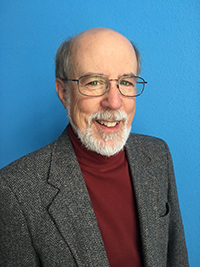
Corteva Agriscience, Agricultural Division of DowDuPont
David Onstad would like to be your next VP-elect for the Plant-Insect Ecosystems (P-IE) Section. I believe that the ESA is important, and I have enjoyed serving the Society in a variety of roles since 1992: (1) co-wrote guidelines for publishing papers about modeling in ESA journals, (2) served on the ESA North Central Branch Awards Committee, (3) co-founded and led the Quantitative Ecology Subsection of the ESA, (4) helped draft the ESA Position Statement on "Resistance Management for Genetically-Modified Crops," and (5) served as either main editor or subject editor of Environmental Entomology for more than 10 years.
My career as a professor (26 years in Illinois) and a research scientist in industry (6-plus years in Delaware and Iowa) has afforded me a perspective that I see as valuable for the P-IE section. Most of my work has focused on ecology and IPM. I enjoy the intellectual challenge of basic ecological questions, but what excites me the most is working to improve IPM. The subjects of my research have included (a) herbivores of alfalfa, apple, wheat, corn, soybean, broccoli, and forest trees; (b) bees, parasitoids, and predatory insects; and (c) diseases of insects. The second edition of my book, Insect Resistance Management: Biology, Economics and Prediction, was published in 2014.
I promise to work hard to continue the recent efforts to make the Section and the ESA relevant to scientists and the public. We are more than relevant; entomologists are critical to the well-being of society.
 Melissa Willrich Siebert
Melissa Willrich Siebert
Corteva Agriscience, Agricultural Division of DowDuPont
Melissa is the Global Entomology Program Leader for Corteva Agriscience, Agricultural Division of DowDuPont. She has held several roles within Dow AgroSciences following her graduate studies at Louisiana State University in 2004 and was awarded the inaugural "FlashPoint" award by Dow AgroSciences for outstanding contributions as an early career professional.
Melissa has demonstrated consistent leadership within entomology and ESA. She served as 2017 President for the Plant-Insect Ecosystems (P-IE) Section where, with her guidance, the Section developed a strategy and agenda to include the design and execution of a highly influential "Science Policy Field Tour on Pollinator Health," attended by scientists, agriculture producers, beekeepers, NGO professionals, and policy makers. In addition, she served as Chair of the ESA Publications Council, subject editor for the Journal Integrated Pest Management, P-IE Section Secretary, and President of the Mississippi Entomological Association. Melissa is currently an assistant editor for the Journal of Cotton Science.
Melissa's demonstrated broad influence and ability to accelerate action will be critical to expand the impact of the Section as a Governing Board representative. She is passionate about the role ESA and P-IE will play as an organizational platform for addressing entomology-related issues and grand challenges. As Governing Board representative, she will proactively seek member inputs and constructively address opportunities to expand the impact of P-IE and ESA in all relevant circles. The ESA exists to serve members, and Melissa has a solid track record in service to P-IE and ESA that has prepared her well to serve on the Governing Board.

University of Minnesota
Anh K. Tran is a Ph.D. student at University of Minnesota (UMN), investigating two competing hypotheses on how the invasive vinegar fly, spotted-wing drosophila, survives in areas that experience seasonal climate changes—overwintering or long-distance migration. She received her M.S. in entomology in 2016 (UMN) working on conservation biological control of the soybean aphid and her B.A. in biology in 2011 (Hiram College). Prior to graduate school, Anh has contributed to molecular detection research for parasitoids of the soybean aphid. Additionally, Anh worked for an environmental consultation company releasing the biological control agent, the milfoil weevil, against Eurasian watermilfoil throughout the United States and Canada.
Anh joined ESA in 2013 and has been an active member, presenting and placing in student competitions at both the national and branch meetings, as well as participating in the Linnaean Games at NCB-ESA every year. This year she will be competing in the Student Debates at the Joint Annual Meeting. In Minnesota, Anh leads outreach events, teaching the public about the wonderful world of entomology, and is a pen-pal for Letters to a Pre-Scientist. Within her department, Anh has held multiple leadership positions (e.g., Vice President, Secretary, and Media Coordinator) for Frenatae, the UMN entomology graduate student organization.
At the college level, Anh has served on the Diversity & Inclusion Committee and has reviewed student travel grant applications. While Anh continues to be very engaged in her community, she is looking forward to becoming more involved with ESA by serving as the Plant-Insect Ecosystems Section Student Representative.
 Donn T. Johnson
Donn T. Johnson
University of Arkansas
Dr. Donn T. Johnson is interested in representing the Plant-Insect Ecosystems Section on the ESA editorial board for American Entomologist. Donn is a professor of entomology at the University of Arkansas. He received a B.S. in biology from the University of Minnesota-Duluth and a Master's in 1976 and Ph.D. in 1978 in fruit entomology from Michigan State University. Since 2014, he has served as Section L (Laboratory Bioassay) editor of ESA's Arthropod Management Tests.
He has 131 publications, 675 citations, and a ResearchGate score of 29.75. He is a research and extension entomologist of fruits, nuts, and rice who develops and implements fruit and nut scouting methods and pest management programs for conventional, organic, and high-tunnel production systems. Donn received the 2002 University of Arkansas John White Grape Team Award and the 2007 ESA Southeastern Branch Award for Excellence in Integrated Pest Management. He has taught Insect Behavior and Chemical Ecology and Insect Pest Management.
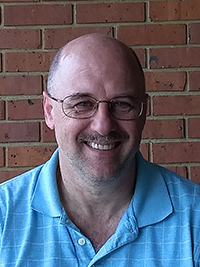 Fred R. Musser
Fred R. Musser
Mississippi State University
Fred is a professor at Mississippi State University, researching and teaching in the area of integrated pest management. He has been an author on more than 50 refereed publications and teaches "Principles of Insect Pest Management" and "Field Crop Insects" annually. His research focuses in the areas of threshold development, sampling methods, and resistance management for pests of soybean, cotton, corn, and sweet potato.
He has been a member of ESA since 1999, joining when he was a graduate student at Cornell University. Previous service to ESA has included being a member of the Plant-Insect Ecosystems Section Governing Council (2013-17), including being president of the section (2015-16); serving as local arrangements chair for the 2015 Southeastern Branch meeting; service on the editorial board of the Journal of Economic Entomology (2009-2013); as well as moderating and judging presentations at numerous meetings and reviewing manuscripts for several ESA journals.
In addition to his service to ESA, Fred is treasurer of the Mississippi Entomological Association, treasurer of the Christian Faculty and Staff Forum at Mississippi State, and a senator in the Mississippi State University Faculty Senate.
 Zsofia Szendrei
Zsofia Szendrei
Michigan State University
I received my Ph.D. in entomology from Michigan State University (MSU) in 2005. In 2009, I was hired by the MSU Entomology Department into a tenure-track position, where I currently am an associate professor with a 50 percent extension, 30 percent research, and 20 percent teaching appointment.
My research focuses on the ecology and management of arthropods that occur in vegetable production. Research themes include chemical ecology, biological control, habitat management, and behavioral pest management. The methods we use range all the way from the field to the molecular lab.
I have been a subject editor for Environmental Entomology since 2015, editing manuscripts in population ecology and biological control.
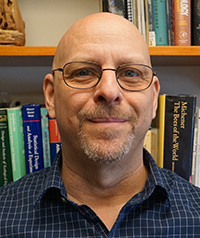 Don Henne
Don Henne
Lakehead University Faculty of Natural Resources Management
Dr. Don Henne is currently assistant professor of forest entomology at Lakehead University in Thunder Bay, Ontario, Canada. He has a B.S. in agriculture (majoring in entomology) and a M.S. in entomology from the University of Manitoba and a Ph.D. in entomology from Louisiana State University.
Dr. Henne has previously worked on biological control of invasive insects and weeds, host-parasitoid interactions, ecologically-based pest management of corn pests in Hawaii, plant disease-vector interactions, plant disease epidemiology, and population ecology of fire ant parasitoids. Dr. Henne is currently interested in boreal and Great Lakes forest insect biodiversity (particularly ants and bees), saproxylic insects, spatial and temporal dynamics and distributions of insect populations, and biology and ecology of oakworms (Anisota) and mapleworms (Dryocampa).
A member of ESA since 1997, Dr. Henne has served on various ESA committees, including panel judge member of the ESA Distinguished Achievement Award in Horticultural Entomology and chair of the ESA Southwestern Branch Audit Committee, and has organized and moderated several ESA symposia. Dr. Henne was one of several recipients of the 2012 ESA Integrated Pest Management Team Award.
SysEB Elections
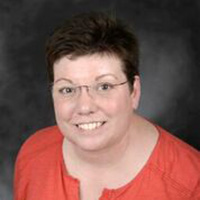 Rebecca (Becky) Simmons
Rebecca (Becky) Simmons
University of North Dakota
Dr. Rebecca (Becky) Simmons earned her Ph.D. in entomology from the University of Minnesota Twin Cities and is currently an associate professor of biology at the University of North Dakota in Grand Forks, North Dakota. Becky's research involves the systematics of tiger moths, the evolution of complex traits, molecular identification of pollinator communities in the Northern Great Plains and inclusion of underrepresented groups in STEM disciplines. She was a recipient of the Snodgrass Memorial Research Award for her dissertation work.
Becky served as treasurer for the Systematics, Evolution, and Biodiversity Section from 2008 to 2011, the Presidential Committee on the ESA Website in 2010, a member of the editorial board for the Journal of Integrated Pest Management from 2009 to 2014, and the Presidential Task Force for Volunteers in 2017. She also was a judge for the National Linnaean Games from 2015 to 2016, as well as a judge for student competitions and session moderator at national and regional meetings. She has co-organized two symposia for the International Congress of Entomology (2004, 2016), as well as one symposium for the annual meeting (2005).

University of Utah
Jack Longino is a Professor of Biology at the University of Utah. He is a specialist in tropical insect diversity and for over 25 years has coordinated large-scale biodiversity inventory projects in Central America. His research focus is on the taxonomy and ecology of Neotropical ants, and he was an early promoter of web-based dissemination of biodiversity data.
He has been subject editor for Formicidae with the journal Zootaxa for 15 years. In 2006, he was awarded the E. O. Wilson Naturalist Award from the American Society of Naturalists. Leadership roles include three years as Associate Chair of the Department of Biology. He holds a Ph.D. from The University of Texas, Austin, and a B.S. from Duke University.
Eastern Branch Elections
 Tracy C. Leskey
Tracy C. Leskey
USDA-ARS, Appalachian Fruit Research Station, Kearneysville, West Virginia
Dr. Tracy Leskey holds a Ph.D. degree in entomology from the University of Massachusetts at Amherst, Massachusetts; a M.S. degree in ecology from the Pennsylvania State University, University Park, Pennsylvania; and a B.S .degree from Wilson College, Chambersburg, Pennsylvania. She has been employed by the USDA-ARS, AFRS, in Kearneysville as a Research Entomologist and as Laboratory Director. Her research has focused on development of behaviorally based management tools for invasive and native pests of fruit crops.
She has published over 100 peer-reviewed journal articles, two patents, and over 40 other publications including book chapters and proceeding articles. She served as a liaison to the House Agricultural Appropriations Committee, providing numerous updates on the pest status of and research progress on the invasive brown marmorated stink bug. She has supervised numerous postdocs and graduate students.
Dr. Leskey has been interviewed by The New York Times, The Washington Post, and NPR and appeared live on Fox News and C-SPAN and has done several stories with National Geographic. As the lead Project Director, she has secured over $14 million in extramural funding. She is a Subject Editor for Environmental Entomology, a member of the Entomological Society of America Special Committee on Governance, and past president of the ESA Eastern Branch.
 Nancy Troyano
Nancy Troyano
Rentokil North America
After receiving her Ph.D. in entomology from Virginia Tech in 2009, Nancy M. Troyano began working for Rentokil North America as Pest Specialist in Hatfield, Pennsylvania. In May 2010, Nancy assumed the role of Training Manager/Entomologist, and has since been promoted to the Director of Technical Education and Training for North America.
Nancy's current responsibilities include:
- Leading and supporting technical education and training for North America.
- Development of training materials and programs for new Pest Specialists (technicians), including a comprehensive academic curriculum as well as a structured on-the-job training program.
- Development of monthly continuing education materials and programs to fulfill state pesticide applicator licensing requirements for all Pest Specialists and Managers.
- Course development in Entomology and Pest Management—utilized globally by Rentokil.
- Ongoing technical support to field operations.
- Subject matter expert for mosquito management and vector-borne disease programs.
- Invited speaker on pests and pest management topics to customers and at industry events, community-education forums, etc.
International Branch Elections
 Thomas J. Simonsen
Thomas J. Simonsen
Natural History Museum Aarhus, Denmark
Thomas J. Simonsen received his Ph.D. (thesis on phylogenetics and evolution of fritillary butterflies) from the University of Copenhagen, Denmark, in 2004. He was a postdoc at the University of Alberta, Edmonton, from 2005 to 2009. From 2009 to 2015 he was a research entomologist at the Natural History Museum, London, United Kingdom. In 2015 he moved back to Denmark to take up a position at the Natural History Museum Aarhus where he is currently a Senior Researcher and Curator of the entomology collections and the collections of amber inclusions, as well as serving as the employees' representative on the museum's governing board.
His main research interests are insect systematics, evolution, morphology, biogeography, and diversity with focus on Lepidoptera, Diptera, and Odonata. His current research foci cover apha taxonomy; Quaternary biogeography and phylogeography of Northern Hemisphere insects with reference to the effects of the glaciations and past climatic changes, as well as more recent anthropogenic activities; general effects of climate changes and landscape changes on insect diversity; and insect palaeontology centred on the unique early Pliocene fossil deposits in northern Denmark.
Thomas has a long history of international collaborations and scientific citizenship engagements: He has previously served as vice-president of the North American Lepidopterists' Society and is currently vice-president of the SEL (Societas Europaea Lepidopterologica) as well as editor of Systematic Entomology.
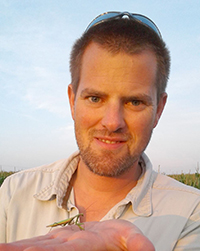 Julien Saguez
Julien Saguez
CÉROM, Centre de Recherche sur les grains, Inc., Québec, Canada
Dr. Julien Saguez completed his Ph.D. in France in 2007. From 2008-2015, he joined Dr. Charles Vincent's laboratory (Agriculture and Agri-Food Canada) as a two-year postdoc and then as a research assistant. He studied the tritrophic interactions between leafhoppers, grapevines, and phytoplasmas. In 2015, Julien joined the CÉROM (Centre de Recherche sur les grains). He develops projects on different field crop pests and conducts projects on invasive pests associated with corn and soybean in a context of climate change. He is also involved into the provincial Pest Monitoring Network.
Julien introduced and advanced the use of electropenetrography (EPG) technique in Canada to conduct studies on the feeding behaviour of leafhoppers and aphids.
Julien has produced several scientific communications—two patents, 21 peer-reviewed scientific papers, five book chapters, five technical bulletins and guides, 10 non-peer-reviewed papers, 10 conferences proceedings, 38 oral presentations, and 47 posters—and has presented in provincial, national, and international meetings.
Since 2008, Julien has promoted entomology to the community, visiting schools and giving courses. More than 4,000 young students have been initiated to entomology.
Julien is member of three entomological societies: SEQ (Québec), ESC (Canada), and ESA (America, Plant-Insect Ecosystems and International Branch member). From 2014 to 2017, Julien was member of the executive committee of the SEQ (president in 2015-2016). In 2015, he was involved in the organizing committee of the ESC-SEQ Joint Annual Meeting. In 2016, at the ICE, he co-chaired a symposium and, in 2018, he will co-organize a symposium for the ESA, ESC, and ESBC Joint Annual Meeting.
Southwestern Branch Elections
 Elizabeth "Wizzie" Brown
Elizabeth "Wizzie" Brown
Texas A&M AgriLife Extension Service
Wizzie Brown is an Extension Program Specialist-Urban IPM in Austin, Texas. Her research interests include red imported fire ants, bed bugs, and termites. Wizzie is a Board Certified Entomologist with a specialty in Urban Entomology. She holds a non-commercial license from the Texas Structural Pest Control Service. She was part of the arbovirus team that won the Southern Region IPM Pulling Together Team Award and the Texas A&M AgriLife Extension Superior Service Team Award in 2017. In 2016, she won the Advisors Team Award from the Texas Master Naturalists. Her team won the Texas A&M AgriLife Extension Superior Service Team Award for School IPM in 2015.
Wizzie served as President of the Society of Southwestern Entomologists (2017). She has participated in local arrangements to organize three meetings; two regional (ESA Southwestern Branch, Chair, 2006 and 2017) and one international (International Meeting on Imported Fire Ants, 2011). She was Program Vice-Chair (2017) for the ESA Southwestern Branch meeting and is currently Program Chair. She has served on the Southwestern Branch's Insect Expo and Youth Science committees since 2010.
She joined the BCE ad hoc committee for reviewing the core exam and served on the BCE certification awards panel from 2014 to 2016. Wizzie has served as Chair (2009) and Vice-Chair (2008) for the Committee on Education and Outreach for ESA. She served as a member of the BioQuip Undergraduate Scholarship committee from 2008 to 2011 and was Chair of the Evaluation Committee for the Stan Beck Fellowship from 2011 to 2012.
 Robert W. Davis
Robert W. Davis
BASF Professional & Specialty Solutions
Dr. Bob Davis has a varied employment background. Positions have included Fisheries Biologist, Pest Control Operator, Pest Control Technician, Extension Research Specialist, Graduate Research Assistant, Technical Director for ABC Pest & Lawn Services of Austin, Texas, and Technical Field Representative for Aventis and Bayer Environmental Sciences. Bob is presently employed as a Technical Services Representative for BASF Professional & Specialty Solutions.
Bob received his educational degrees from the University of Nebraska-Lincoln (UNL). At UNL he received a B.S. degree in natural resources and his M.S. and Ph.D. from UNL. He is a Board Certified Entomologist and is active in the Entomological Society of America. His graduate work was focused on testing and evaluating termite control materials and techniques. Bob has multiple publications in peer-reviewed journals and has provided educational materials and articles through extension and professional magazine venues. He has provided many and varied educational and research presentations in our industry for over 25 years.
 Jesus F. Esquivel
Jesus F. Esquivel
USDA-ARS Insect Control and Cotton Disease Research Unit
Dr. Jesus Esquivel is a Research Entomologist with the Insect Control and Cotton Disease Research Unit (USDA-ARS) in College Station, Texas. He has been a member of the Southwestern Branch (SWB) of the ESA for 25 years. Dr. Esquivel actively serves the branch, section, and national levels of the ESA. He has served on SWB's governance as Past President (2014-15), President (2013-14), Vice President (2012-2013), and Secretary/Treasurer (2011-12).
Additionally, he has served as chair and member of multiple SWB Committees, including Awards & Honors, Linnaean Games, Membership, Nominating, Program, and Site Selection Committees. At the national level, Dr. Esquivel has served as chair or member on numerous ESA committees, including Annual Meeting Program Committee (Program Co-Chair, 2015-16; Poster Co-Chair, 2016-17; Student Competition Co-Chair, 2014-15). He further served on the Organizing Committee for the 2016 International Congress of Entomology, which was by far the largest gathering of entomologists in history.
Moreover, Dr. Esquivel has been active within the Plant-Insect Ecosystems (P-IE) Section of ESA; he served as Representative for P-IE on the Awards & Honors Committee (2011-14). Similarly, he served as the SWB Representative to Awards & Honors Committee and Membership Committee at the national level. Dr. Esquivel is a current member of the Board of Counselors for the Entomological Foundation. Through his leadership experience at the branch, section, and national levels, Dr. Esquivel has developed an improved understanding of ESA processes and governance that will enable him to effectively represent the Southwestern Branch.
 Elizabeth "Wizzie" Brown
Elizabeth "Wizzie" Brown
Texas A&M AgriLife Extension Service
Wizzie Brown is an Extension Program Specialist-Urban IPM in Austin, Texas. Her research interests include red imported fire ants, bed bugs, and termites. Wizzie is a Board Certified Entomologist with a specialty in Urban Entomology. She holds a non-commercial license from the Texas Structural Pest Control Service. She was part of the arbovirus team that won the Southern Region IPM Pulling Together Team Award and the Texas A&M AgriLife Extension Superior Service Team Award in 2017. In 2016, she won the Advisors Team Award from the Texas Master Naturalists. Her team won the Texas A&M AgriLife Extension Superior Service Team Award for School IPM in 2015.
Wizzie served as President of the Society of Southwestern Entomologists (2017). She has participated in local arrangements to organize three meetings; two regional (ESA Southwestern Branch, Chair, 2006 and 2017) and one international (International Meeting on Imported Fire Ants, 2011). She was Program Vice-Chair (2017) for the ESA Southwestern Branch meeting and is currently Program Chair. She has served on the Southwestern Branch's Insect Expo and Youth Science committees since 2010.
She joined the BCE ad hoc committee for reviewing the core exam and served on the BCE certification awards panel from 2014 to 2016. Wizzie has served as Chair (2009) and Vice-Chair (2008) for the Committee on Education and Outreach for ESA. She served as a member of the BioQuip Undergraduate Scholarship committee from 2008 to 2011 and was Chair of the Evaluation Committee for the Stan Beck Fellowship from 2011 to 2012.
